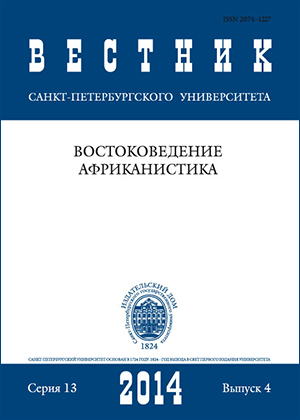Tradition of anti-utopia in Gao Xingjian’s play “The Other Shore”
Abstract
Gao Xingjian (1940), an outstanding representative of experimental theatre in China at the beginning of the 80s, in his drama “The Other Shore” (1986) displays an original anti-utopia. In terms of the subject matter the play marks the point of no return to treading carefuly with “sensitive” topics, as it could be seen in his previous plays “Absolute Signal” (1982), “The Bus Stop” (1983) and “The Wild Man” (1985). The playwright followed the genre of anti-utopia and transformed it into a socio-philosophical tragedy — an illusionary world rooted in a society ruled by masses. The paper explores specific functioning of anti-utopian genre within the play and interprets its pivotal figures based on how they form the play’s multilayered conflict. Refs 12.
Keywords:
tradition, anti-utopia, drama, power, personal identity, masses, escape, the Other shore
Downloads
References
Downloads
Published
How to Cite
Issue
Section
License
Articles of "Vestnik of Saint Petersburg University. Asian and African Studies" are open access distributed under the terms of the License Agreement with Saint Petersburg State University, which permits to the authors unrestricted distribution and self-archiving free of charge.





